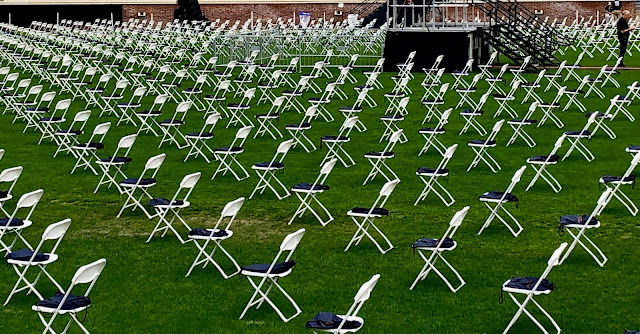Someday we're going to look back on abortion as one of those issues that captivated our nation's attention when we should have been focused on actual problems.
I've certainly been writing about it for a long time. Two dozen years ago, for the 25th anniversary of the Roe v. Wade ruling, I found two women on opposite sides of the fence, and dug up some background on the ruling itself. Alas, this could run in the paper tomorrow with very little alteration.
 |
| Metropolitan Museum of Art |
When the historic Roe vs. Wade decision on abortion was announced 25 years ago this week, both Mary Anne Hackett, at home with her five children, and Sue Purrington, at her job, were overcome with emotion. Both vowed to change their lives but, in keeping with one of the most controversial Supreme Court rulings of the century, those vows were at cross-purposes.
"I cried because I was very happy," said Purrington, who went on to work for abortion-rights groups. "I made a pledge in my life that what I was going to do was make sure Roe would stay legal."
"I remember reading it and crying," said Hackett, president of Illinois Right to Life. "I couldn't believe the land of the free and the home of the brave would allow mothers to kill their children. I became very actively involved on that day."
Roe vs. Wade, which upheld a woman's right to have an abortion, at least in the first two trimesters, was a landmark, and 30 million legal abortions have taken place since then.
All because of a case that started with a 22-year-old Texas street person named Norma McCorvey, who had two children and, pregnant again, wanted an abortion, which was illegal in Texas in 1970. Calling a lawyer she thought would find her an abortionist, she was drawn into a group of activist lawyers searching for a pregnant woman to use in a lawsuit to overturn the state ban.
McCorvey was first called "Jane Doe," but that reminded her of the tag put on a woman who had died giving herself an abortion; it was changed to "Jane Roe." Few realize that McCorvey, unable to get an abortion, had the child.
She later changed her position, and now she is strongly anti-abortion.
The "Wade" was Henry Wade, the Dallas district attorney, who lost the case and appealed it all the way to the Supreme Court.
Abortion was not entirely banned in the United States before Roe. Instead, each state decided individually the circumstances under which women could have an abortion.
A few states permitted abortion; others banned abortion altogether or, as in Illinois, permitted it only when the life of the mother was at stake. About 500,000 legal abortions were performed nationwide in 1972.
The number of illegal abortions is harder to determine. Women with money went to Mexico or to states with open abortion laws.
Poor women were in a tougher situation. Desperate for abortions, they went to great and sometimes fatal lengths to end their pregnancies. They douched with bleach or peroxide. They used paint brushes and cocktail stirrers and pencils and knitting needles. And yes, they used wire hangers.
"Of course they did," said Dr. Quentin Young, who worked at Cook County Hospital in the 1970s, when as many as 90 women at a time were in the hospital's septic abortion ward, suffering from their own attempts or from the bungling of back alley butchers. "They hurt themselves, perforated their uteruses, they came in bleeding, with difficult-to-treat infections."
Anti-abortion activists contend that whatever barbarities were inflicted on women in those pre-Roe times have been dwarfed by the plight of the unborn caused by easy access to abortion.
"Abortion has destroyed America," Hackett said, adding that women who have abortions universally regret it, leading sad and lonely lives spent missing their dead children. "It has destroyed respect for human life and had a brutalizing and sad effect on women, pretending that they can kill their children and just walk away as if nothing happened. Millions of women are suffering from it."
Purrington, who had an illegal abortion as a teenager in 1960, still recalls the fear and humiliation she suffered.
"The result of Roe is it institutionalized the right of a woman to feel safe and was a significant step in women having control over their own lives," Purrington said. "Roe meant that most women did not have to die in back alleys, or fear for their lives."
Robert Bennett, a law professor at Northwestern University, finds two surprises from a perspective of 25 years:
"First, how little closure, societally, the court was able to bring to the abortion issue by rendering the decision. And then, how much staying power the decision has had. It didn't seem to end conflict out there in society. But it has held."
—Originally published in the Sun-Times, Jan. 20, 1998











